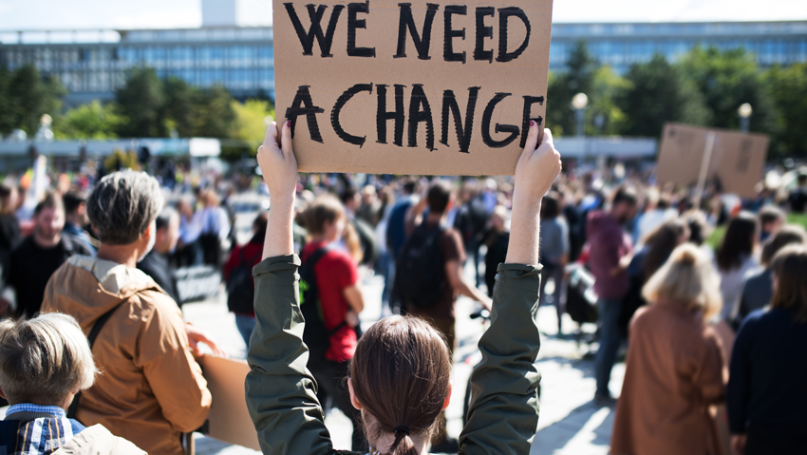
The World Bank, the world’s largest multilateral development bank, has faced longstanding criticism for perceived shortcomings such as coercive loan conditions and inadequate environmental safeguards. However, recently, the scrutiny has escalated even further for its failure to mobilize sufficient funds for climate change efforts in vulnerable countries, as well as politicization of the climate change issue, undermining the universality of the challenge at hand. As climate change wreaks havoc on communities worldwide – the planet witnessed the highest temperatures ever recorded in its history during the first week of July – critics demand a fundamental transformation of the World Bank’s approach. They call for prioritizing climate finance to protect the most vulnerable populations and effectively combat the escalating climate crisis.
During the summit for Global Financing Pact in Paris last month, Kenyan President William Ruto expressed his strong criticism of the global lending system operated by the IMF and the World Bank. According to Ruto, the system is unjust, punitive, and lacks equal opportunities for all countries. “We are tired of this story” painting Africans as “victims of climate change” who are “looking for favors” and “complaining,” he said. “We do not want to look for help. We want to participate in the solution,” Ruto said on the summit’s final day.
Last week, the President of COP28, Dr. Sultan Al Jaber unveiled his action plan for the climate summit, with a key focus on overhauling the global climate financing system. The President astutely acknowledged that developing countries face severe devastation from the climate crisis but lack resources for low-CO2 transition. The current climate financing is insufficient, inaccessible, and biased towards wealthier countries. Al Jaber called for a ‘’comprehensive transformation’’ of the World Bank and international finance institutions, including private sector funding to address this pressing issue.
The newly instated president of the World Bank, Ajay Banga, resoundingly echoes this sentiment. As the G20 finance ministers convene in India, he boldly proclaims, “The Global South’s frustration is understandable. In many ways they are paying the price for our prosperity.” Yet, mere acknowledgement is insufficient; the world needs action.
It is imperative that the World Bank makes addressing climate change its top priority. Though some leaders, including the Biden administration, support this shift in principle, it involves challenging trade-offs that policymakers haven’t fully tackled. Economic uncertainty hinders the U.S. and its allies from allocating substantial funds to expand the World Bank’s climate change efforts. Additionally, rising tensions between the U.S. and China threaten the bank’s traditional approach, as these major shareholders compete to directly finance significant infrastructure projects.
Developing countries desperately need investment in clean energy infrastructure and climate resilience projects. Existing funds, such as the Green Climate Fund, have made progress, but the scale of climate finance required is estimated to reach $500 billion annually by 2050. The bureaucracy-laden fund, which some argue functions more like a bank itself, simply cannot achieve this target.
As the World Bank prepares to unveil a new strategic direction, it has a crucial opportunity to align its mission with the pressing challenge of climate change. This urgency offers the World Bank an opportunity to redefine its role for the twenty-first century, with substantially increased commitments to climate finance, prioritizing projects directly related to curbing greenhouse gas emissions, and helping communities adapt to extreme weather conditions.
After all, climate change is not just one issue among many for the World Bank. It poses a real threat to the achievement of its other development goals, such as ending extreme poverty and promoting education. The bank itself has estimated that climate change could push over 130 million more people into poverty within a decade, underscoring the importance of addressing it as a prerequisite for sustainable development.
To fully embrace the transformation, however, it is imperative for the developed world to adopt a collective mindset. It must depoliticize the issue of climate change and perceive it as a common, and existential, threat to the entire planet.
The United States, as the World Bank’s largest shareholder, holds the pivotal role in leading the transformative efforts. By collaborating with other major stakeholders, the U.S. can drive the bank towards a climate-centric approach. Notably, John Kerry’s ongoing visit to China to discuss climate challenges presents a critical opportunity. While expectations for any substantial outcome from the visit may seem unrealistic, it is precisely in such moments that the realization of transformative visions of this scale become possible.
The World Bank faces mounting pressure to prioritize climate change as its new overarching mission. Tackling climate change will require significant adjustments to its investments and institutional orientation. By redirecting its focus towards climate finance and adopting a transformational approach, the World Bank can lead the charge in protecting communities from the impacts of climate change, while promoting sustainable development worldwide. The need for action is urgent, and the time for reform is now.
Further Reading on E-International Relations
- Opinion – Why Does the World Bank Not Classify Ukraine as ‘In Conflict’?
- Agroecology, Climate Change Induced Polycrisis and the Transformation of Food Systems
- Opinion – Protest, Interrupted? Climate Activism During the Coronavirus Pandemic
- Contested Multilateralism as Credible Signalling: Why the AIIB Cooperates with the World Bank
- Opinion – Post-COVID-19 Climate Change Politics
- Foreword: Global Climate Justice